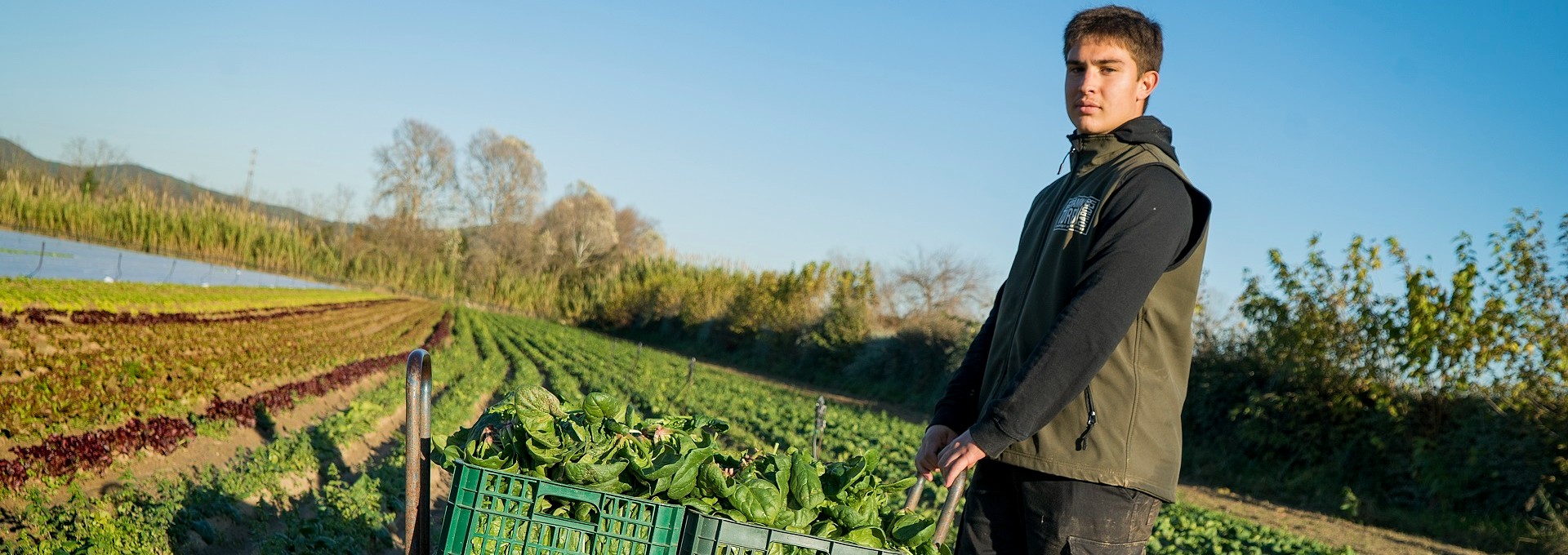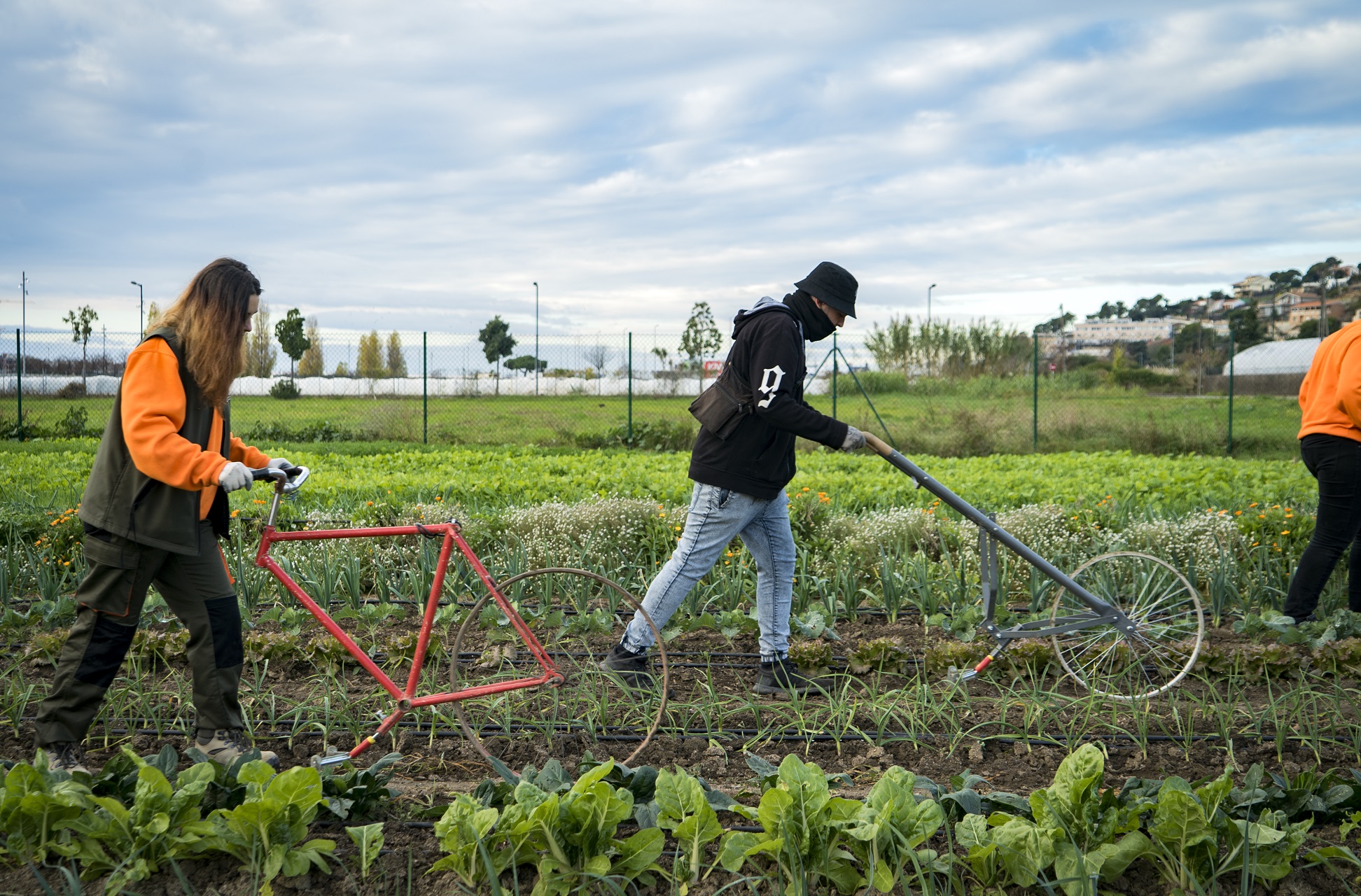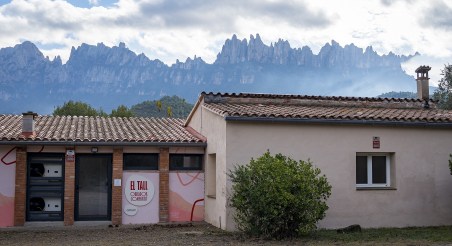In an atmosphere full of expectations and with an eye on the near future, the recently inaugurated Cabrils Agrarian School became yesterday the meeting point where the main references in the research, training, management, and innovation of the Barcelona horticultural sector outlined a training program aimed at revolutionizing agriculture in the province. With the primary objective of exploring collaboration formulas in the field of education, knowledge transfer, innovation, and entrepreneurship in the agricultural sector, the meeting brought together the management of the educational center and the representatives of the three vegetable farming parks in the region, the Territorial Agricultural Directorate of the Barcelona Provincial Council, and the Department of Climate Action, Food, and Rural Agenda of the Government of Catalonia.
The new school, which is already emerging as a reference center in horticultural training and technological innovation in Catalonia, is strategically located in Maresme, a key region in the horticultural production of the province: with nearly 10,000 hectares of land dedicated to horticulture in the Maresme, Baix Llobregat, Vallès Oriental, and Vallès Occidental, this area concentrates a significant part of the Catalan production of vegetables, legumes, and fruits. In this sense, the choice of its location in the heart of this horticultural axis is not accidental but the result of a shared vision that aims to turn the Barcelona coast into a prominent space for horticultural production in the Mediterranean.
The current context, characterized by increasing technification and the need for constant innovation, makes this type of specialized horticultural training absolutely essential for both established companies and emerging initiatives. For this reason, during the meeting, the coordination and planning of a training offer that transforms the Agricultural School of Cabrils into a stronghold of learning and specialization for emerging horticultural entrepreneurs in Catalonia was discussed. Emphasis was also placed on the creation of a support space for the new farming generation of the Lower Llobregat Agrarian Park, the Lower Tordera Agrarian Space and the Five Senies-Mata-Valldeix Agrarian Space, the three farming parks on the Barcelona coast. Likewise, faced with the prediction that 200 currently active farms in these parks will be without owners in the next five years, an action plan with concrete actions to favor generational renewal and ensure the future of the horticultural sector in the area was agreed upon.
With the promotion of this horticulture hub in the Maresme, the Barcelona Provincial Council reaffirms its commitment to sustainable and local agri-food production, positioning the agricultural parks of the province as leaders in agricultural training and innovation, attracting new talents to a traditionally aging sector.
For more information about the actions promoted by the Barcelona Provincial Council to facilitate agricultural succession, please contact Sònia Callau, head of the Agrarian Territorial Directorate of the corporation and coordinator of the BCN Smart Rural program.
— BCN Smart Rural Editorial —




